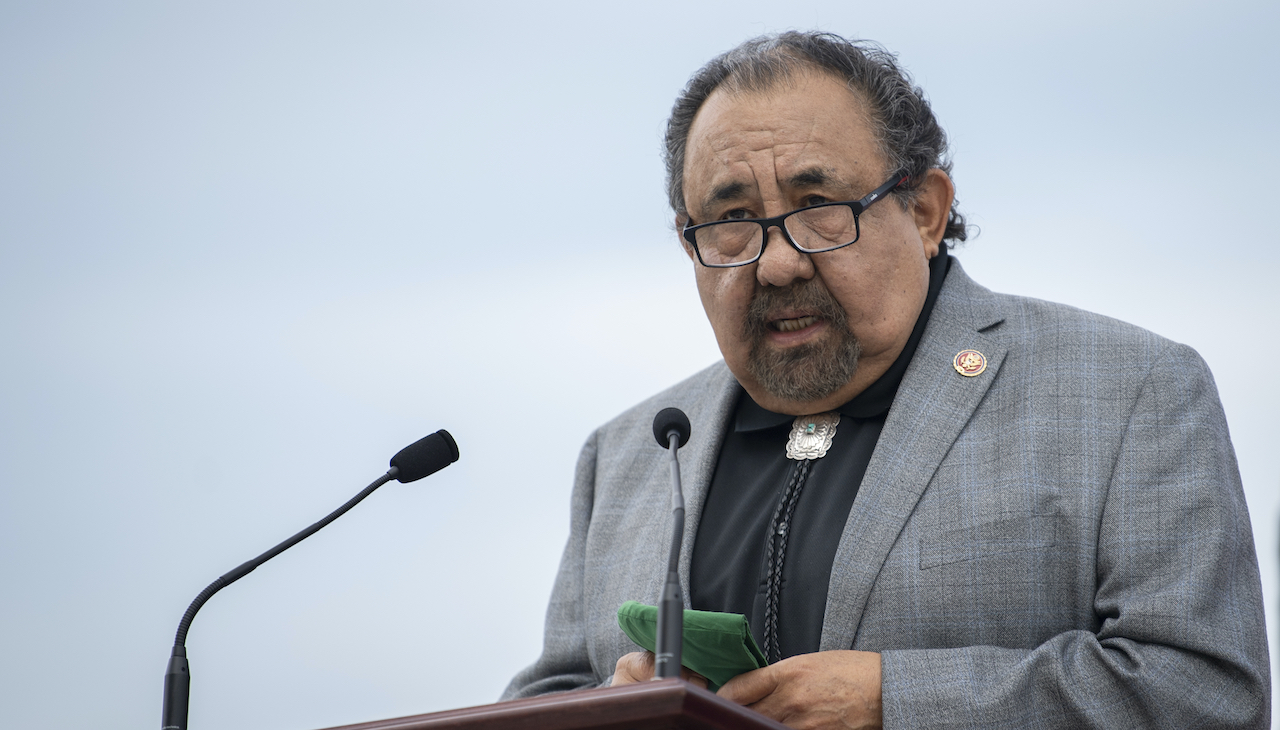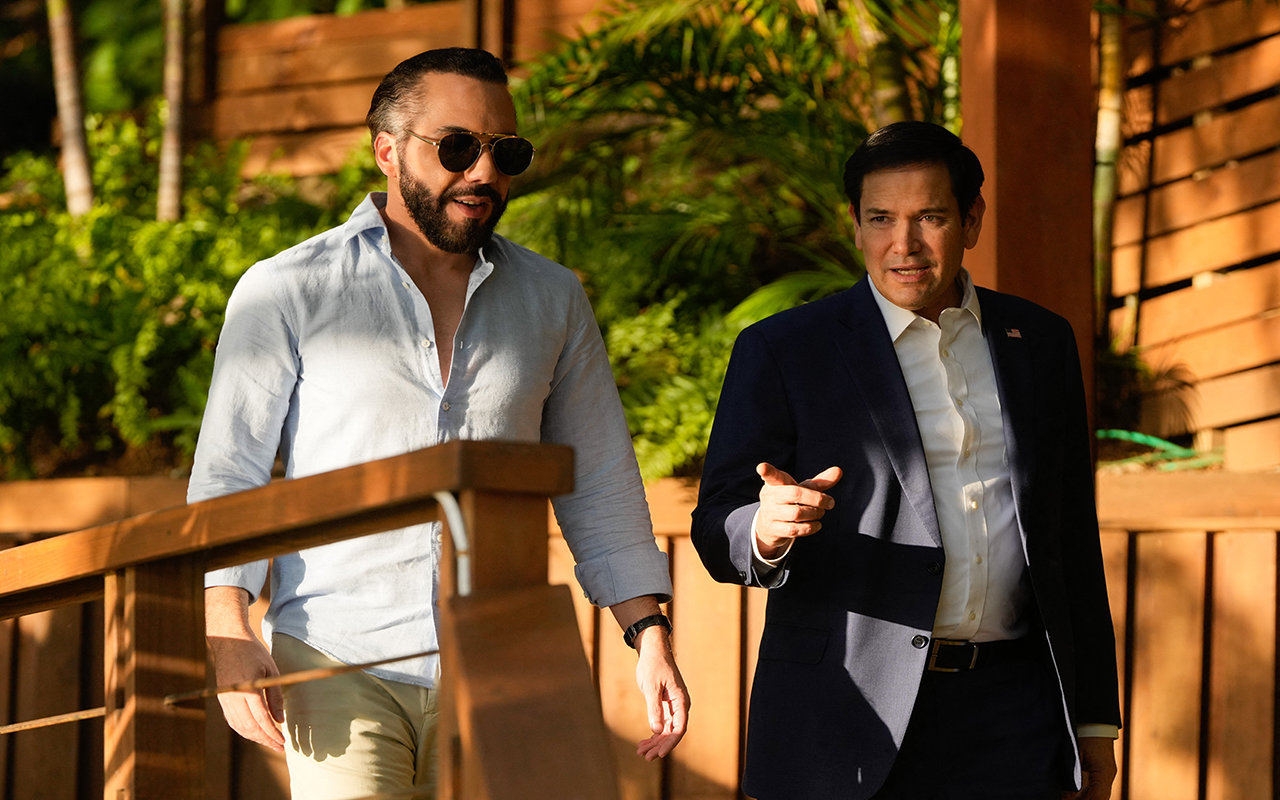
Rep. Raúl Grijalva defends sacred Apache land from mining companies with new bill
The Save Oak Flat act was introduced on March 15, and will permanently protect the mountainous region in Arizona from mining projects.
Oak Flat or Chi’chil Bildagotee, the mountainous patch of land in Arizona, is on a path to destruction, but the Native Americans who inhabit the surrounding land are fighting back.
To the San Carlos Apache Tribe, Oak Flat is sacred ground and has been used for centuries to hold religious ceremonies and communicate with the Creator.
Their reservation is on the outskirts of Tonto National Forest, which is named for the Tonto group of Apaches who lived in the area until the U.S. Army forcibly removed them in the 1870s.
The Oak Flat area has been considered holy ground for thousands of years. Apaches go there to pray, seek personal cleansing and hold ancestral ceremonies.
But the area has long been sought after by mining companies, because beneath its surface there lies one of the largest copper deposits in the world.
The land is scheduled to be transferred to Resolution Copper, a company controlled by two foreign mining giants, and turned into one of the largest copper mines in the country.
The transfer was set in motion through an eleventh-hour provision slipped into a 2014 defense bill by Republican Sens. John McCain and Jeff Flake.
Holy War
For this tribe, the fight to protect Oak Flat isn’t just an economic or legal battle. Dr. Wendsler Nosie Sr., former Chairman and Councilman of the San Carlos Apache Tribe, refers to it as a “holy war.”
"This fight specifically reminds us of the similar displacement that the Indigenous communities have been facing for many, many years, but also what migrant communities have been facing." #PoorPeoplesCampaignhttps://t.co/FwQTuEiJhL
— Kairos Center (@KairosCenterNYC) February 23, 2022
Attorney Luke W. Goodrich, who is representing Apache Stronghold in its legal battle to protect the site, said that many have compared the land to Mount Sinai for Jewish people.
“It’s like a central channel between the creator and the Apache, and there’s a lot of religious practices that must take place in Oak Flat,” Goodrich said.
Since 1955, Oak Flat has been protected under federal law, when President Dwight D. Eisenhower placed a mining ban on the area. President Richard Nixon renewed the ban in 1971, but added a loophole that allowed for the area to be mined if it was traded to private interests.
McCain, who died in 2018, promoted the project in a 2014 op-ed, claiming that the mine would generate jobs and boost the local economy and that the land would remain open to tribal members and others until the company breaks ground.
Naelyn Pike, Nosie’s granddaughter, testified before Congress in opposition to the arrangement when she was only 13.
Geronimo descendent and Oak Flat activist Naelyn Pike in Times Square during the Apache Stronghold's cross-country tour to #SaveOakFlat which began on the San Carlos Tribal Reservation and ended in a huge inter-tribal gathering in Washington, D.C. pic.twitter.com/JWMneoYWQV
— Kierán Suckling (@KieranSuckling) March 1, 2021
“Our cultural identity is being stripped away from us. No tree can live without its roots, and we’re that tree,” Pike, now 21, told NBC News.
A fierce legal standoff
The Apache Stronghold group argued in their lawsuit that the planned destruction of Oak Flat would violate religious freedom protections. It also stated that an 1852 treaty between the Western Apaches and the U.S. gives them the rights to the site.
"The Oak Flat Parcel of the proposed Resolution Copper Mine Project is located right smack dab in the middle of the Western Apaches' 1852 Treaty lands," the lawsuit says.
But this attempt was unsuccessful. Government lawyers argued that the group can’t assert ownership rights of the land because they aren’t a federally recognized tribe.
RELATED CONTENT
The lawyers, representing the U.S. Forest Service, also said that the Apaches faced no immediate harm on the land transfer and that they had failed to show a “substantial burden” on their religious exercise.
Politicians standing in solidarity
Last month, Arizona Rep. Raúl Grijalva wrote a letter to the White House and to the secretaries of Interior and Agriculture, calling on the agencies to apply recent policy directives to all ongoing federal reviews and decisions on the Resolution Copper mine.
Breaking: U.S. Rep. Raul Grijalva (D-Ariz.) introduced the Save Oak Flat Act today to protect the Indigenous sacred site in Arizona from being destroyed by a @RioTinto copper mine.
— Russ McSpadden (@PeccaryNotPig) March 15, 2021
Sen. Bernie Sanders is set to introduce a companion bill in the Senate.https://t.co/C4Dmh0j9RM
On Tuesday, March 15, Grijalva introduced the Save Oak Flat Act, to permanently protect the Oak Flat area of Tonto National Forest from destructive mining proposals.
“The San Carlos Apache never asked for this land to become a political issue, but this is not a fight we’re going to lose. I will work to move this bill forward, this land is going to be protected, and we’re going to establish that you don’t get to push around Native American communities just because you can make a profit,” Grijalva said.
Sen. Bernie Sanders, author of the Senate companion bill, said in a statement that “we must defend the hundreds of thousands of Americans who are standing in opposition to this giveaway of our natural resources to foreign corporations.”
“Not going anywhere”
In mid-February, 100 tribal members gathered on the site to mark a ceremonial coming of age for Apache girls.
This four-day Sunrise Ceremony celebrates the transition from girl to woman in the Apache faith, and is a triumph of endurance with several hours of dance and prayer each day.
On the morning of the final day, the girl heads to the spiritual springs, where she washes clay off her body, representing her rebirth as women.
Apaches have worshipped at Oak Flat since before recorded history--praying, gathering sacred plants, and holding ceremonies that can’t happen anywhere else, such as the coming-of-age Sunrise Ceremony for Apache women. Oak Flat is in the National Register of Historic Places. pic.twitter.com/GrJvmfaDf9
— Luke Goodrich (@LukeWGoodrich) March 23, 2021
“That ceremony paves out her life for her. And if it’s destroyed, that main part of her life is going to be destroyed,” Vanessa Nosie, Wendsler Nosie’s daughter, told NBC News.
Wendsler said he is willing to die to protect the land his people hold sacred.
“I’m not going anywhere,” he said.











LEAVE A COMMENT: